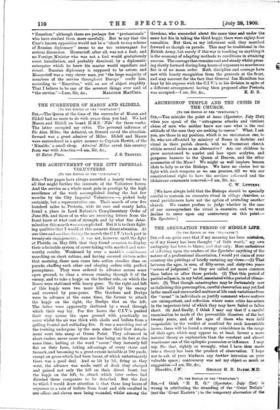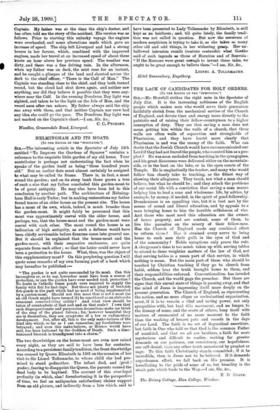ET° TRE EDITOR OF THE eseacraTowe think "'Hi R. G."
(Spectator, July 218t) is wrong in attributing the stranding of the Great Britain' (not. the Great Eastern ' ) to the temporary aberration of the Captain. My father was at the time the ship's doctor, and has often told me the story of the accident. His version was as follows. Prior to starting this unlucky voyage the engines were overhauled, and some alterations made which gave an increase of speed. The ship left Liverpool and had a strong breeze in her favour, which, combined with the improved engines, made her travel at an increased speed of about three knots an hour above her previous speed. The weather was dirty, and there was a fine driving rain. In the afternoon, when my father was on deck, the mist rose for an instant, and he caught a glimpse of the land and shouted across the deck to the chief officer, "There is the Calf of Man." The Captain was standing close to the chief, and they both turned round, but the cloud had shut down again, and neither saw anything, nor did they believe it possible that they were any- where near the Calf. In the evening Dundrum Bay light was sighted, and taken to be the light on the Isle of Man, and the vessel soon after ran ashore. My father always said the ship ran away with them, and that neither Captain nor crew had any idea she could go the pace. The Dundrum Bay light was not marked on the Captain's chart.—I am, Sir, &c., C. C. PYCROFT. Woodlea, Grassendale Road, Liverpool.



































 Previous page
Previous page